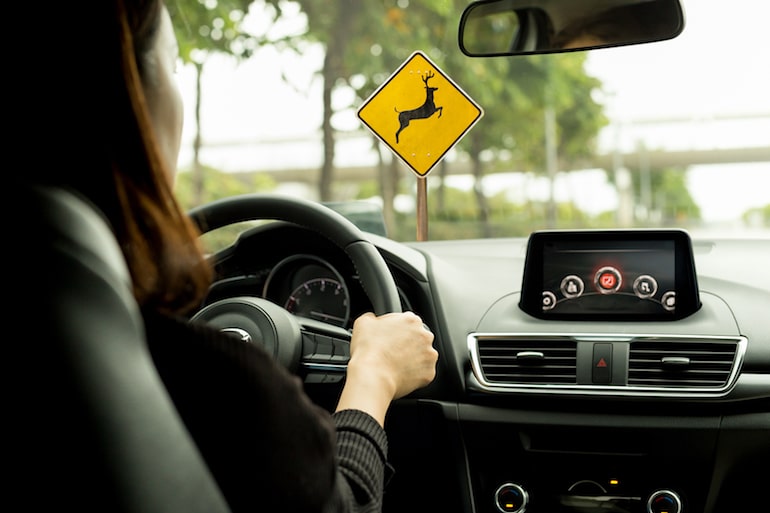What to Do If You Hit a Deer With Your Car: Your Questions Answered
Most of us appreciate the sight of a deer moving gracefully through the woods. However, these generally beautiful animals become extremely dangerous when they venture onto a road or highway. Because they move so quickly, knowing what to do if you hit a deer can be confusing. Here are some helpful guidelines.
Do You Have a Case?Facts about deer-related accidents in Michigan during 2018
- There were 53,464 deer-related crashes.
- 14 people died and 1,335 were injured as a result of these accidents.
- 52,250 vehicles were damaged.
- 33,036 of these crashes occurred on local streets while the rest took place on interstate highways and state and US routes.
- There were more deer-related accidents, deaths and injuries last year than in 2017.
- The average vehicle repair cost was more than $2000.
What to do if you hit a deer with your car?
First, determine whether you or any of your passengers are hurt. If anyone is injured, call for an ambulance immediately.
Call the police even if no one is hurt.
Do not approach the deer or try to move it. While the deer may not be moving, a wounded deer can be dangerous.
If your car is drivable, pull to the side of the road or shoulder and turn your hazard lights on.
If possible, document the incident by taking photos of the road and the surrounding area, the deer and your vehicle. If anyone is hurt, take photos and/or notes describing the injuries.
If there are witnesses, ask them to describe what they saw. Take down their accounts and ask for their contact information in case you need to contact them later.
What should I do to avoid hitting a deer?
While deer often run into the road without warning, there are certain things drivers can do to avoid an accident.
- Slow down when traveling through deer-populated areas, especially when there are warning signs.
- If one deer crosses the road in front of you, remember that deer travel in herds and several others may be right behind.
- Be especially vigilant during dawn and dusk, when deer are more likely to be on the move.
- It’s usually not a good idea to swerve to avoid hitting a deer. You could end up hitting a tree or an oncoming car.
Does my No-Fault insurance cover deer accidents?
Medical expenses
If you are injured, your Michigan No-Fault policy will cover the cost of all necessary accident-related medical services. This coverage is included in your Personal Injury Protection (PIP) benefits, which also include attendant care. PIP benefits also cover a portion of lost wages and replacement services for up to three years.
If your passengers are injured, their medical bills will be covered under their own No-Fault policies. For passengers not covered by No-Fault, your policy will cover their approved medical expenses.
Vehicle repair costs
Under current Michigan No-Fault law, vehicle owners are not required to carry collision insurance. Therefore, if your vehicle was damaged, coverage for repair costs depends on your insurance policy.
If your policy doesn’t include collision coverage, you will be responsible for repairing your vehicle.
If you have collision insurance, you will have to pay your deductible, unless you have a zero-deductible comprehensive policy.
What if another vehicle was involved?
The situation changes if another motor vehicle was involved in the accident.
If you or your passengers are injured, your PIP benefits will still cover your accident-related medical bills.
However, if you are injured and the other driver was at fault, you may be eligible for additional compensation. This could include the portion of your lost wages and/or replacement services not covered by your PIP benefits. In addition, you may receive non-economic damages, such as pain and suffering.
In this case, an experienced auto accident lawyer will help you obtain the compensation you deserve.
Michigan auto laws are complicated, but finding the right attorney is simple.
Call 1-800-CALL-SAM today for a free, no-obligation consultation.
Do You Have a Case?Sources:
HAVE YOU BEEN INJURED?
Get The Bernstein Advantage® today!
Free. Simple. Quick.


